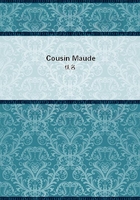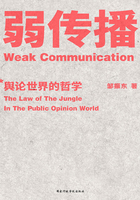SOCRATES: By the dog of Egypt I have a not bad notion which came into my head only this moment: I believe that the primeval givers of names were undoubtedly like too many of our modern philosophers, who, in their search after the nature of things, are always getting dizzy from constantly going round and round, and then they imagine that the world is going round and round and moving in all directions; and this appearance, which arises out of their own internal condition, they suppose to be a reality of nature; they think that there is nothing stable or permanent, but only flux and motion, and that the world is always full of every sort of motion and change. The consideration of the names which I mentioned has led me into making this reflection.
HERMOGENES: How is that, Socrates?
SOCRATES: Perhaps you did not observe that in the names which have been just cited, the motion or flux or generation of things is most surely indicated.
HERMOGENES: No, indeed, I never thought of it.
SOCRATES: Take the first of those which you mentioned; clearly that is a name indicative of motion.
HERMOGENES: What was the name?
SOCRATES: Phronesis (wisdom), which may signify phoras kai rhou noesis (perception of motion and flux), or perhaps phoras onesis (the blessing of motion), but is at any rate connected with pheresthai (motion); gnome (judgment), again, certainly implies the ponderation or consideration (nomesis) of generation, for to ponder is the same as to consider; or, if you would rather, here is noesis, the very word just now mentioned, which is neou esis (the desire of the new); the word neos implies that the world is always in process of creation. The giver of the name wanted to express this longing of the soul, for the original name was neoesis, and not noesis; but eta took the place of a double epsilon. The word sophrosune is the salvation (soteria) of that wisdom (phronesis) which we were just now considering. Epioteme (knowledge) is akin to this, and indicates that the soul which is good for anything follows (epetai) the motion of things, neither anticipating them nor falling behind them; wherefore the word should rather be read as epistemene, inserting epsilon nu. Sunesis (understanding) may be regarded in like manner as a kind of conclusion; the word is derived from sunienai (to go along with), and, like epistasthai (to know), implies the progression of the soul in company with the nature of things. Sophia (wisdom) is very dark, and appears not to be of native growth; the meaning is, touching the motion or stream of things. You must remember that the poets, when they speak of the commencement of any rapid motion, often use the word esuthe (he rushed); and there was a famous Lacedaemonian who was named Sous (Rush), for by this word the Lacedaemonians signify rapid motion, and the touching (epaphe) of motion is expressed by sophia, for all things are supposed to be in motion. Good (agathon) is the name which is given to the admirable (agasto) in nature; for, although all things move, still there are degrees of motion; some are swifter, some slower; but there are some things which are admirable for their swiftness, and this admirable part of nature is called agathon.
Dikaiosune (justice) is clearly dikaiou sunesis (understanding of the just); but the actual word dikaion is more difficult: men are only agreed to a certain extent about justice, and then they begin to disagree. For those who suppose all things to be in motion conceive the greater part of nature to be a mere receptacle; and they say that there is a penetrating power which passes through all this, and is the instrument of creation in all, and is the subtlest and swiftest element; for if it were not the subtlest, and a power which none can keep out, and also the swiftest, passing by other things as if they were standing still, it could not penetrate through the moving universe. And this element, which superintends all things and pierces (diaion) all, is rightly called dikaion; the letter k is only added for the sake of euphony. Thus far, as I was saying, there is a general agreement about the nature of justice; but I, Hermogenes, being an enthusiastic disciple, have been told in a mystery that the justice of which I am speaking is also the cause of the world: now a cause is that because of which anything is created; and some one comes and whispers in my ear that justice is rightly so called because partaking of the nature of the cause, and I begin, after hearing what he has said, to interrogate him gently: 'Well, my excellent friend,' say I, 'but if all this be true, I still want to know what is justice.' Thereupon they think that I ask tiresome questions, and am leaping over the barriers, and have been already sufficiently answered, and they try to satisfy me with one derivation after another, and at length they quarrel. For one of them says that justice is the sun, and that he only is the piercing (diaionta) and burning (kaonta) element which is the guardian of nature.
And when I joyfully repeat this beautiful notion, I am answered by the satirical remark, 'What, is there no justice in the world when the sun is down?' And when I earnestly beg my questioner to tell me his own honest opinion, he says, 'Fire in the abstract'; but this is not very intelligible. Another says, 'No, not fire in the abstract, but the abstraction of heat in the fire.' Another man professes to laugh at all this, and says, as Anaxagoras says, that justice is mind, for mind, as they say, has absolute power, and mixes with nothing, and orders all things, and passes through all things. At last, my friend, I find myself in far greater perplexity about the nature of justice than I was before I began to learn. But still I am of opinion that the name, which has led me into this digression, was given to justice for the reasons which I have mentioned.
HERMOGENES: I think, Socrates, that you are not improvising now; you must have heard this from some one else.
SOCRATES: And not the rest?
HERMOGENES: Hardly.















